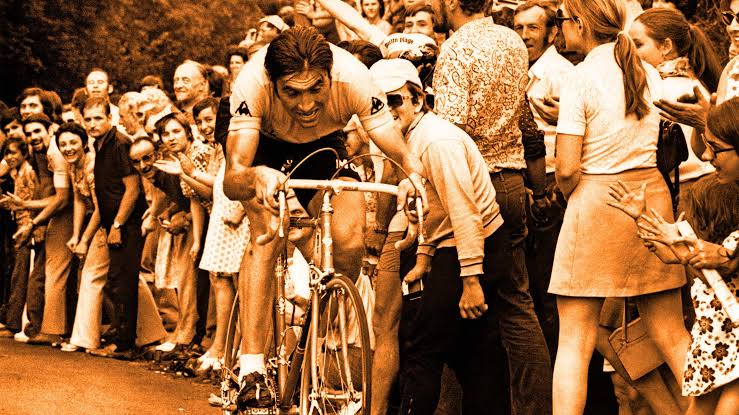
The 1975 Tour de France is remembered as a dramatic clash between two of the sport’s greatest cyclists—Eddy Merckx, the Belgian “Cannibal” seeking his sixth Tour victory, and the French upstart Bernard Thévenet, who was determined to dethrone the legend. The race was a test of endurance, resolve, and grit, but it also highlighted Merckx’s unmatched dedication, even when his body was breaking down.
Merckx, already an iconic figure in cycling with five Tour victories under his belt, entered the 1975 edition with hopes of adding a sixth to his remarkable legacy. But the Tour began under a cloud of uncertainty: Merckx, for the first time in his career, was faced with a serious challenge for the yellow jersey. Thevenet, a strong climber and determined competitor, quickly emerged as his main rival, and it was clear this would be no ordinary Tour.
One of the defining moments of the race came during the grueling climb to the Puy de Dôme, where Merckx’s physical condition would take a heavy toll. On the climb, a violent altercation with a spectator
Despite these overwhelming setbacks, Merckx refused to abandon the race. His fighting spirit, which had made him a legend in the sport, was never more evident than in the weeks that followed. Even though he was clearly suffering and his chances of victory seemed slim, Merckx chose to continue, not for himself but to honor the race and his opponent.
In his eyes, retreating from the race would have tarnished Thévenet’s triumph. Merckx knew that the French rider’s victory would mean far more if he had to beat the best. And so, despite the pain, despite the injuries, Merckx rode on, refusing to let his own misfortune overshadow Thévenet’s success.
Though Merckx did not win his sixth Tour in 1975—Thévenet ultimately claimed the yellow jersey—it was his perseverance and commitment to the race that left a lasting legacy. Far from diminishing his stature, his determination to continue riding through immense pain only deepened his respect among cycling fans, especially in France, where his valor in the face of adversity captured the hearts of the public.
Merckx’s 1975 Tour was not just a battle for victory—it was a testament to his greatness as a cyclist and a sportsman. His decision to press on, despite the odds, showcased the kind of dedication that has made him one of the greatest athletes in history. While Thévenet may have taken the yellow jersey that year, it was Merckx who left the greatest impression, not just as a champion, but as a fighter, a competitor, and a true legend of cycling.
Leave a Reply